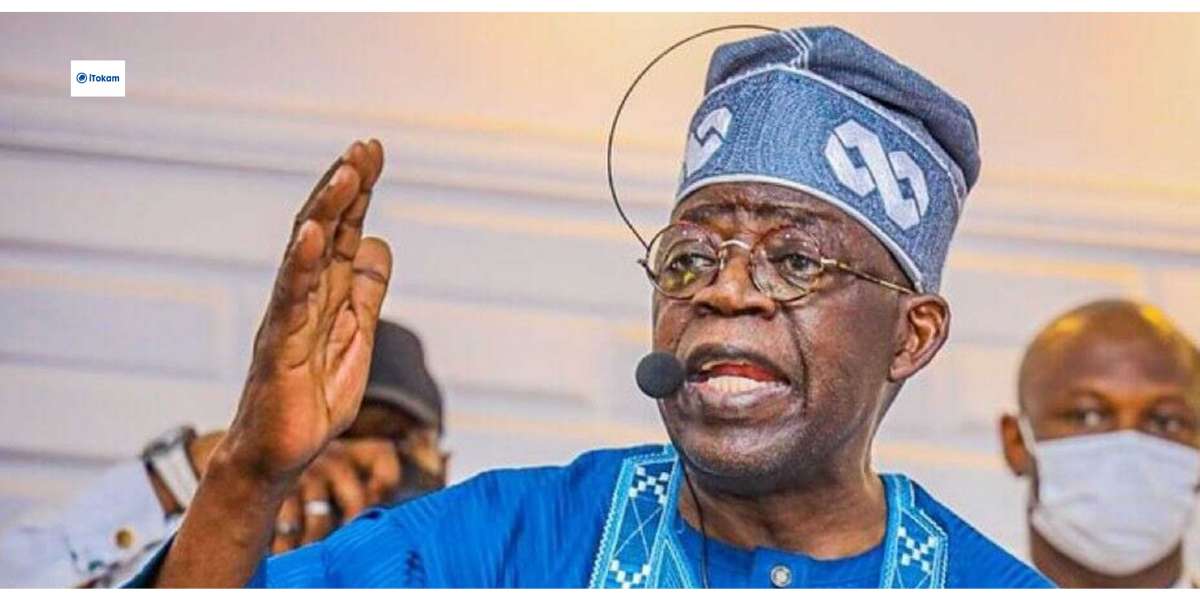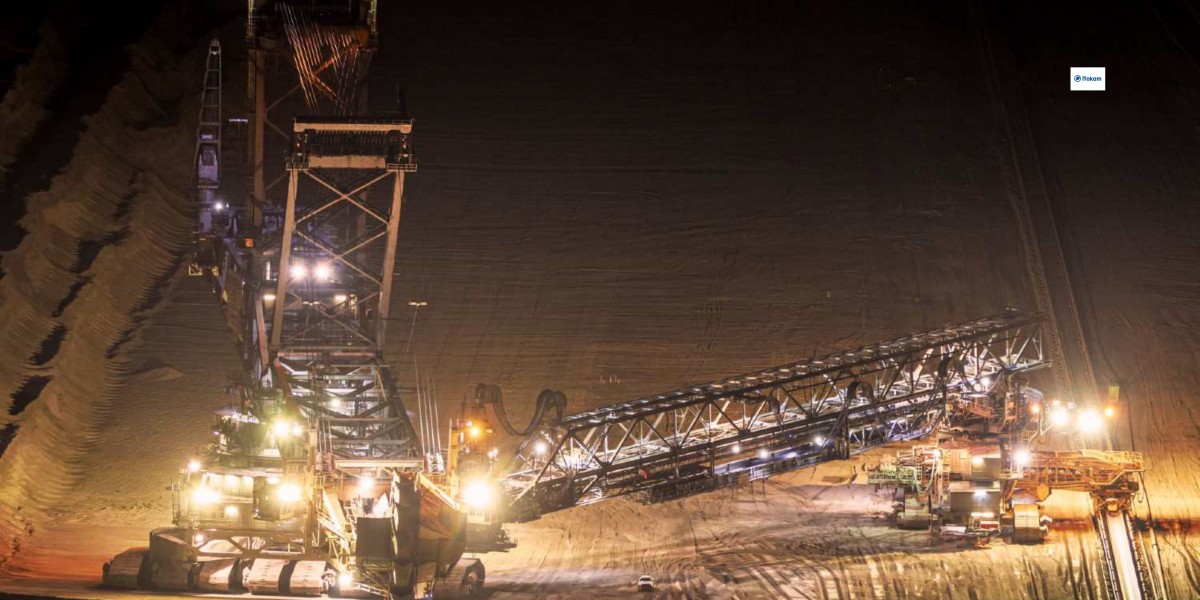Speaking at the Inauguration Lecture that was held at the International Conference Centre in Abuja, Tinubu stressed the important role that democracy plays as a foundation for the success and prosperity of the nation. He also emphasized the significance of democracy in promoting the interests of the nation.
The address that was given by the President-elect was given by the Vice President-elect, Kashim Shettima. In it, the President-elect called on the residents of Nigeria to collaborate with the newly elected government in order to improve the country.
Tinubu reaffirmed the commitment of the new government to democratic ideals, according to a statement released by Tunde Rahman of the office of the President-elect. He also said, "Democracy is more than a system of governance; it is a vital component that enables a nation to flourish and thrive." We are on the verge of entering a brand-new period, one in which the principles of democracy will serve as the compass that directs us toward environmentally responsible growth.
The incoming president embraced his African identity and reaffirmed his love for the continent. At the same time, he acknowledged the collective efforts of Nigerians and Africans in shaping their democratic political cultures and institutions in a manner that is tailored to the specific conditions and challenges faced by their respective societies.
He stated that "democracy, my fellow countrymen, is not only a political system, but it is also a way of life." It contains a unique code of thought and behavior, requiring the utmost honesty and self-improvement from those in positions of leadership.
In continuation, the President-elect remarked that while democracy ensures freedom, its continuation depends on the responsible and measured use of that freedom, and that it enables the majority to express their will while protecting the fundamental interests of the minority. He also stated that democracy enables the minority to protect their fundamental interests.
"Our democracy is not a theoretical ideal; it is a practical vessel that will drive our nation to new heights in all aspects of our collective existence," Tinubu declared.
He acknowledged the virtues of democracy even in its imperfect expressions, highlighting the fact that it exceeds the most ideal dictatorship in terms of fairness, humanism, and production. His ideas came from the national experience of Nigeria.
Also Read: Breaking: S-Court Dismisses PDP’s Suit, Affirms Bola Tinubu’s Eligibility For Presidency
He placed a strong emphasis on the significance of cultivating open venues for discussion and debate, arguing that this is the means through which the most effective ideas and programs might penetrate the national conversation and catch the imagination of the people.
He made a commitment to utilizing democratic institutions not only to protect political and civil rights, but also to push other economic changes that will generate broad-based prosperity, provide employment opportunities, and unlock the nation's untapped potential. He said this in his speech.
"Today, I stand before you, ready to dedicate my entire being to the service of our great country and the African continent," the President-elect remarked to the audience. "I look forward to serving you all."
In his remarks, President Muhammadu Buhari observed that the inauguration lecture led listeners on a voyage of reflection on the imperatives of democratic administration and nation-building, underlining issues that confront the socio-political fabrics of Nigeria. He said this in reference to the lecture's topic, which was "Imperatives of Democratic Governance and Nation-Building."
"Through our experiences, we have realized that democracy is more than just a form of government. It is a mode of existence. When the people's voices are ignored, there is no such thing as true democracy. The advancement of our country is contingent upon our capacity for inclusiveness, unity, and not abandoning any of our citizens, as well as ensuring that all of our people reap the benefits of effective governance.
"It is imperative that we pay attention to the information presented here and put it into practice. We need to wage war against corruption in any shape it takes. We can't let our unity go away. The richness of our variety is our greatest asset. We have the ability to put aside our differences and work together toward a common goal of progress.
UHURU Kenyatta, a former president of Kenya, gave the keynote presentation at the event. In it, he urged the next president, Tinubu, to unite the country despite any ethnic, political, or religious cleavages that may exist.
He pointed out that once Asiwaju Bola Tinubu is inaugurated in as President, he becomes father to everyone and as a result, he needs to use his administration as a force that brings people together.
The former leader of Kenya stated that the difficult work of constructing a successful and cohesive Nigeria now begins that the competition has come to an end.
"Once you have been elected President of Nigeria, it will behoove you to move beyond the petty politics of an election and into your role as the nation's visionary leader. This will necessitate a fundamental shift away from the combative mentality that we as politicians are accustomed to adopting throughout the political process.
"As president, you must learn very quickly to lead those who love you and those who don't with equal passion and commitment because now, you are the father of all," Kenyatta told him. "Because now, you are the father of all."
Meanwhile, Dr. Akinwumi Adesina, President of the African Development Bank (AfDB), has issued a plea to the incoming President, Asiwaju Tinubu, to rise beyond party lines and other connections and craft economic policies with persuasive power in order to drive the nation ahead.
Adesina mentioned in his speech that Nigerians would be looking up to Tinubu to solve the several problems, such as insecurity, that have acted in concert to bring the nation's economy to its knees and drive a wedge between the population.
He stated that Nigerians explicitly demand a new administration that will guarantee security, peace, and stability as well as unleash a new wave of prosperity that would unite the fractured nation and boost the economy. He also stated that Nigerians want a new administration that will provide security, peace, and stability.
"Stability in both the macroeconomy and the budget should be the starting point. If the economy is not revitalized and the economic difficulties are not bravely tackled, there will be insufficient resources for development. "If you tie a bird's wings together, it can't fly," he pointed out.
The current budget deficit of Nigeria is projected to be equal to six percent of the country's GDP. This has occurred as a result of significant expenditures made by both the federal government and state governments, decreased receipts as a result of a decline in earnings from the export of crude oil, vandalism of pipelines, and illegal bunkering of crude oil.
The Debt Management Office of Nigeria reports that Nigeria currently spends 96% of its revenue on debt servicing, with the ratio of debt-to-revenue expected to rise from 83.26% in 2021 to 96.36% in 2022.
Akinwumi continues by saying, "Some will argue that the debt to GDP ratio at 34 percent is still low compared to other countries in Africa, which is correct; however, no one pays their debt using GDP." Akinwumi is correct. Revenue is used to make payments on debt, but Nigeria's revenues have been going down recently. Instead of using its money to invest in its economy and thrive, Nigeria is using it to pay off debt.
"The best place to begin would be to do away with the ineffective fuel subsidies. The wealthy in Nigeria are the ones who stand to gain from the government's gasoline subsidies, which fuel the endless fleets of automobiles owned by the government at the expense of the poor. According to some estimates, the poorest forty percent of the population only uses three percent of the nation's total gasoline supply.
"Fuel subsidies are hurting the economy of Nigeria, and they are projected to cost the country $10 billion in 2022 alone. That indicates that Nigeria is taking on debt that it does not need to if it were to just do away with the subsidies and put the resources to good use for the country's overall growth.
The president of the African Development Bank (AfDB) advised the Tinubu administration to instead provide support to private sector refineries as well as modular refineries. This would allow for increased levels of efficiency and competition, which would ultimately result in lower pricing at the pump.
He expressed optimism that the newly commissioned Dangote Refinery by President Buhari will revolutionize Nigeria's economy. The Dangote Refinery is the largest single train petroleum refinery in the world, and its Petrochemical Complex is the largest of its kind.
In addition, he charged the incoming administration with conducting an immediate review of the cost of governance, noting that the "cost of governance in Nigeria is way too high and should be drastically reduced in order to free up more resources for development." He made this statement after stating that the "cost of governance in Nigeria is way too high." Nigeria is investing very little on development. According to the World Bank 2022 Public Expenditure Review report, Nigeria is now rated among the countries that have the lowest human development index in the world. More specifically, Nigeria holds the 167th spot out of 174 countries on the global scale.
The analysis estimates that three trillion dollars will be necessary by the year 2050 in order to satisfy the vast infrastructural demands of Nigeria. If things continue as they are, the analysis estimates that it will take Nigeria three hundred years to reach the bare minimum level of infrastructure that is required for the country's development. By that time, there won't be a single living Nigerian left, not to mention many generations to come after them!
"We have to make a difference here. Increased reliance on the private sector for the creation of new infrastructure in Nigeria is necessary to lighten the fiscal load on the federal government.
According to Akinwumi, there are many things that can be done to increase tax revenue despite the fact that the tax-to-GDP ratio is still low. "This must entail enhancing tax collection as well as tax administration, moving from tax exemption to tax redemption, ensuring that multinational firms pay adequate royalties and taxes, and ensuring that leakages in tax collection are plugged.
However, merely increasing tax rates is not enough because many people dispute the significance of paying taxes; as a result, there is a significant amount of tax evasion. A great number of residents drill boreholes to gain access to water, maintain and repair the roads in their towns and neighborhoods, and generate their own electricity.
"This is effectively a very high form of unstated taxes. Because of this, the 'implicit tax rates' that Nigerians pay are the highest in the world. To ensure the success of social contracts, governments are obligated to provide citizens with high-caliber public services. It is not the quantity that is collected but rather how it is spent and what is given with that money that matters. Countries with strong economies have efficient governments that uphold the social obligations they have made with their citizens.
"Both the structure and the performance of the economy need to undergo rebalancing. The idea that "we need to diversify the economy" is one that is repeated frequently in Nigeria under each new government that takes power.
He stated that the AfDB was ready to assist in increasing the human capital of every state in the country, and he went on to say, "We are equally ready to assist in revamping agricultural lending institutions to assist in modernizing the food and agriculture sector."
"Nigeria's most valuable resource is not its natural resources; rather, Nigeria's most valuable resource is its human capital." In order for Nigeria to build up the capabilities it needs to be globally competitive in a global economy that is fast being digitized, we need to make significant investments in human capital.
The well-attended lecture had in attendance the National Chairman of the ruling All Progressives Congress (APC), Senator Abdullahi Adamu; Deputy Speaker, House of Representatives, Idris Wase; Secretary to the Government of Federation, Boss Mustapha; His Eminence, Sultan Mohammed Abubakar Sa’ad of Sokoto; Ooni of Ife, Oba Enitan Ogunwusi; Most Rev. Bishop Mathew Kukah, and Deputy Secretary-General of United Nations, Amina Mohammed.
A number of ministers, members of the National Assembly, and other high-ranking government officials were also there.
In preparation for the swearing-in ceremony of the President-elect, Bola Tinubu, the Indian government has dispatched its Defence Minister, Mr. Rajnath Singh, to attend the event in the capacity of a Special Envoy of the Prime Minister. The inauguration ceremony is scheduled to take place tomorrow.
In a statement that was released yesterday by the Indian Embassy in Nigeria, India announced that Mr. Singh would be arriving in Abuja, Nigeria, today for the occasion.
"The visit of Mr. Rajnath Singh is a reflection of the expanding bilateral relations between India and Nigeria and is a show of India's determination to further developing its relationships with Nigeria.
"Mr. Singh is being accompanied by a high-level delegation that includes senior officials from the Ministry of Defence and the Ministry of External Affairs of India. " He holds the position of the most senior Minister in the Indian government.
"Sending such a senior Minister to Nigeria as a Special Envoy of the Prime Minister of India symbolizes India's commitment to the deep-rooted bilateral relations with Nigeria," the statement added.





